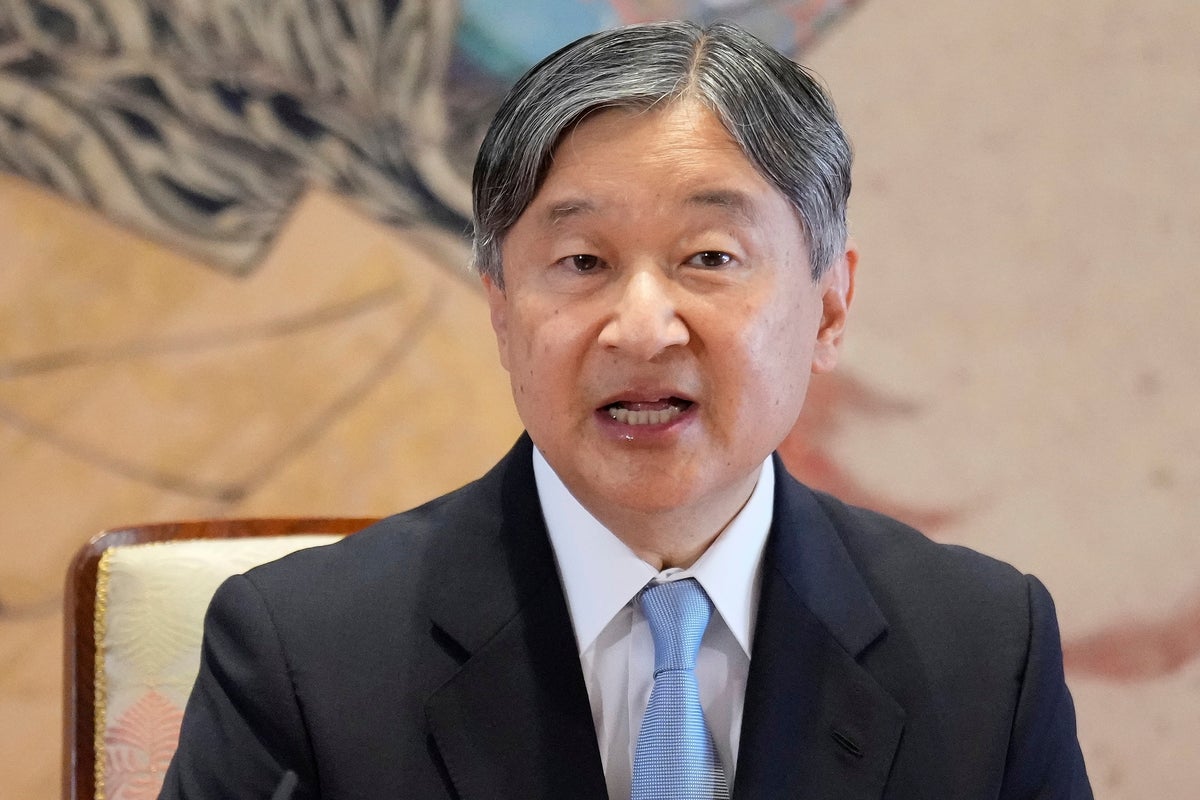From reproductive rights to climate change to Big Tech, The Independent is on the ground when the story is developing. Whether it’s investigating the financials of Elon Musk’s pro-Trump PAC or producing our latest documentary, ‘The A Word’, which shines a light on the American women fighting for reproductive rights, we know how important it is to parse out the facts from the messaging.
At such a critical moment in US history, we need reporters on the ground. Your donation allows us to keep sending journalists to speak to both sides of the story.
The Independent is trusted by Americans across the entire political spectrum. And unlike many other quality news outlets, we choose not to lock Americans out of our reporting and analysis with paywalls. We believe quality journalism should be available to everyone, paid for by those who can afford it.
Your support makes all the difference.
Read more
Japan‘s Emperor Naruhito said Wednesday that he will honor thousands of Japanese prisoners of World War II who were held under harsh conditions in Mongolia when he visits the country next week.
Naruhito, marking the 80th anniversary of the end of WWII, has been visiting some of the places where the bloodiest battles and bombings occurred, including Iwo Jima, Okinawa and Hiroshima. It’s part of his effort at atonement and remembrance of the tragedy of war fought in the name of his grandfather, Emperor Hirohito.
“I will pay tribute to the Japanese people who unwillingly died in the distant land away from home, and think of their hardships,” Naruhito said at a news conference ahead of his July 6-13 trip to Mongolia. His Harvard-educated former diplomat wife, Empress Masako, will accompany him.
Just before the end of the hostilities in 1945, the Soviet Union had declared war on Japan, taking most of about 575,000 Japanese POWs to Siberia. But around 12,000 to 14,000 of them were taken to Mongolia, which was fighting alongside the Soviets against Japan.
Most of the POWs were put to hard labor and construction work for the Mongolian government’s headquarters, a state university and a theater that are still preserved in the capital Ulaanbaatar. The prisoners toiled under harsh conditions and scarce food. Japanese records show about 1,700 of them died in Mongolia.
“As we mark the 80th anniversary of the end of the war this year, we should never forget the pain and sorrow of the people,” Naruhito said. “I believe it is important to not forget those who died, deepen understanding of the wartime past and to nurture the peace-loving heart.”
Naruhito has repeatedly stressed the importance of telling the war’s tragedy to younger generations, pledging to contribute to efforts to promote the understanding of history and the determination for peace.
The emperor’s trip to Mongolia will be his second since he visited in 2007 as crown prince to mark the 35th anniversary of the diplomatic ties between the countries.
